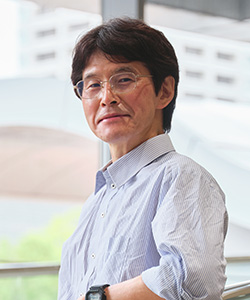Research Division
RESEARCH GROUP Ⅱ
Growth Policies and Experiences among Asian Countries
Japan was the first Asian country to become a modern developed country and has experienced various successes and failures, all of which can serve as valuable references for growing Asian countries. This group conducts research on what emerging Asian countries, as Japan’s important economic cooperation partners, can learn from Japan’s economic development process and related policies, and make policy recommendations based on the research findings.
Moreover, the present era is no longer one in which institutional reforms can be learned only from western countries. In this area, this group conducts research on what Japan can learn from the dynamic economic growth and related policies of Asian countries that grew remarkably in recent years, making policy recommendations based on the research results.
| Group Leader | KISHIMOTO Chikashi |
|---|---|
| Member | Alvaro DOMINGUEZ |
Research Projects for FY2025

A study of the development situation of startup ecosystem in Taiwan
Staff:KISHIMOTO Chikashi
Associate Professor
The representative of this study has conducted a series of research projects on Taiwan’s startup ecosystem over the past several years. In particular, I have accumulated case studies of actors who support startups, for example, research on accelerators (AppWorks, StarFab Accelerator, Epoch Foundation & Garage+), large companies (Wistron), universities and research institutes (Industrial Technology Research Institute, Taidah Entrepreneurship Center, Center of Industry Accelerator and Patent Strategy, National Yang Ming Chiao Tung University), and government and public institutions (Hsinchu Science Park, Kaohsiung City). The R7 FY and R8 FY project (two-year plan) aims to systematically analyze the development situation of startup ecosystem in Taiwan based on these research results. In the first year (R7), this study will continue to reinforce insufficient areas as an extension of the representative ’s research so far (e.g., case studies of funders = VCs and angel investor clubs). In the second year (R8), based on these results, this study plans to take a bird’s-eye view of the entire ecosystem and analyze its overall development.

A study of economic growth and air quality dynamics in China with a focus on regional disparities
Staff:Alvaro DOMINGUEZ
Assistant Professor
China’s rapid economic growth and industrial expansion have led to severe air pollution, raising concerns about public health. This study examines the income-pollution relationship using a new dataset that expands that from Wu et al. (2022) by incorporating more cities and extending the time period. Using spatial analysis methods, this study assesses whether income growth improves air quality while accounting for spatial spillover effects. Additionally, this study corrects for population density to better isolate demographic and economic effects, recognizing the existence of regional disparities. The expanded dataset allows us to evaluate whether previous findings hold across more diverse urban settings and a longer time horizon. This study also examines whether disparities in pollution and income are widening or converging, offering insights into the environmental sustainability of China’s current path. The findings can provide policy implications for balancing economic growth with environmental protection.
